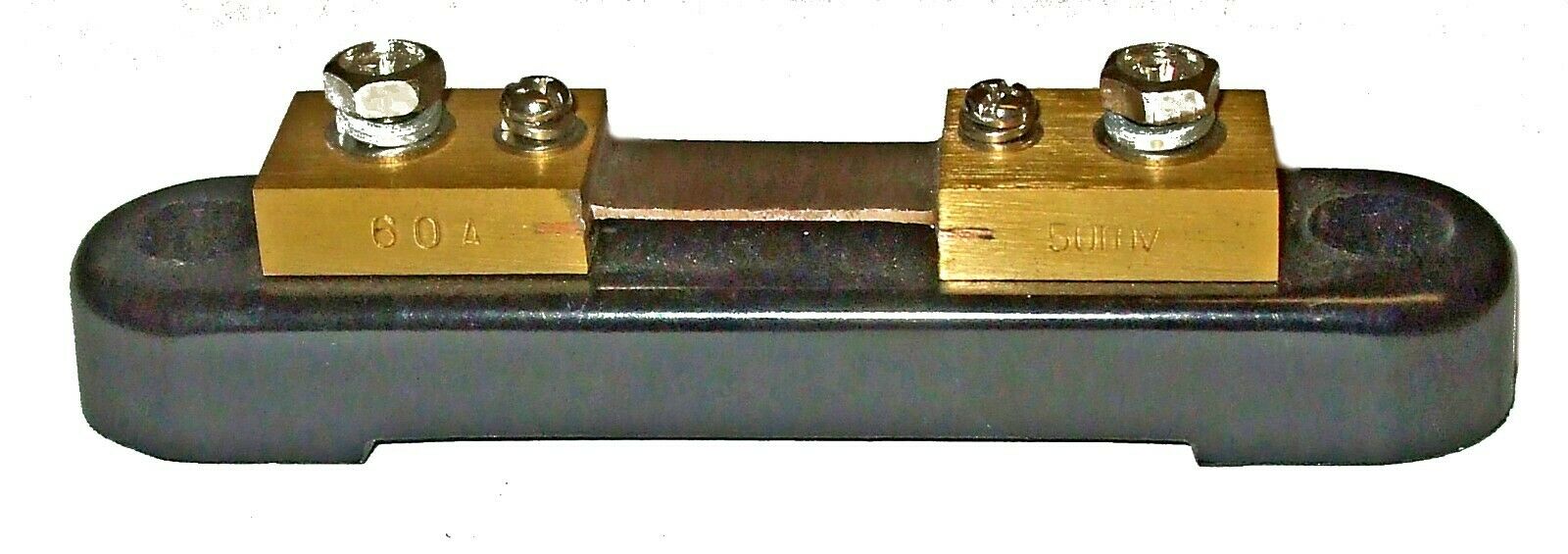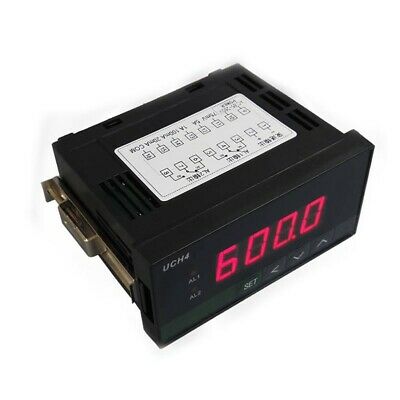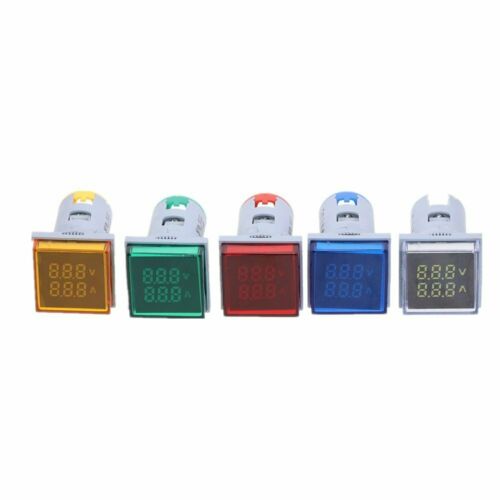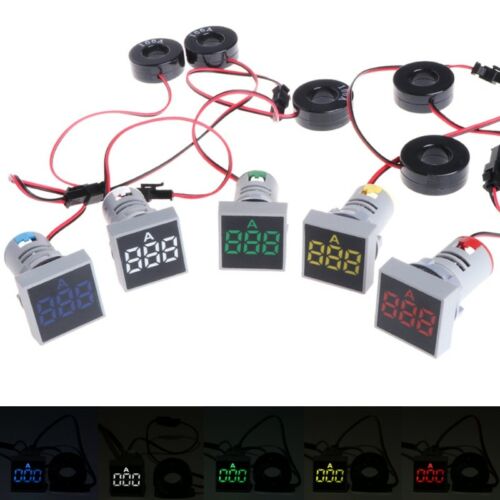-40%
ammeter Shunt for 50mV ammeter gauges 246xx
$ 28.9
- Description
- Size Guide
Description
SHUNTS FOR 60mV AMMETERS - VARIOUS CURRENT RATINGS. Pt.no. 246xx50mV brass ended shunts mounted on an insulating bakelite base. Suits our type R59 panel mounted ammeters or any other ammeter gauges having 50mV movements. NB - Shunt rating MUST match the ammeter range for correct operation, eg a 60amp meter must use a 60amp shunt, an 80amp meter must use an 80amp shunt etc.
60amp 50mv pt.no. 2468
80amp 50mv pt.no. 24681
100amp 50mv pt.no. 2469
150amp 50mv pt.no. 2470
To install the shunt, identify the wire in which you want to measure the current. Make sure power is safely switched off or disconnected. Cut the wire at a point where the shunt can be conveniently mounted. Insert the shunt into the break in the wire, connecting the two wire ends to the M6 studs at each end of the shunt - it doesn't matter which way round the shunt is fitted. Connect two lightweight wires (eg 1.5mm2) to the small signal screws on the shunt and run these up to the studs on the back of the meter.
Approx 125mm long, the brass shunt is mounted on a bakelite body which insulates it from the mounting surface.
The main power cable connections at each end of the shunt are M6 screws. There are M6 mounting holes in the bakelite body.
The signal lead connections are M2.5 screws.
weight 175g
SHUNTS FOR 60mV AMMETERS - VARIOUS CURRENT RATINGS. Pt.no. 246xx 50mV brass ended shunts mounted on an insulating bakelite base. Suits our type R59 panel mounted ammeters or any other ammeter gauges having 50mV movements. NB - Shunt rating MUST match the ammeter range for correct operation, eg a 60amp meter must use a 60amp shunt, an 80amp meter must use an 80amp shunt etc. 60amp 50mv pt.no. 2468 80amp 50mv pt.no. 24681 100amp 50mv pt.no. 2469 150amp 50mv pt.no. 2470 To install the shunt, identify the wire in which you want to measure the current. Make sure power is safely switched off or disconnected. Cut the wire at a point where the shunt can be conveniently mounted. Insert the shunt into the break in the wire, connecting the two wire ends to the M6 studs at each end of the shunt - it d
SHUNTS FOR 60mV AMMETERS - VARIOUS CURRENT RATINGS. Pt.no. 246xx 50mV brass ended shunts mounted on an insulating bakelite base. Suits our type R59 panel mounted ammeters or any other ammeter gauges having 50mV movements. NB - Shunt rating MUST match the ammeter range for correct operation, eg a 60amp meter must use a 60amp shunt, an 80amp meter must use an 80amp shunt etc. 60amp 50mv pt.no. 2468 80amp 50mv pt.no. 24681 100amp 50mv pt.no. 2469 150amp 50mv pt.no. 2470 To install the shunt, identify the wire in which you want to measure the current. Make sure power is safely switched off or disconnected. Cut the wire at a point where the shunt can be conveniently mounted. Insert the shunt into the break in the wire, connecting the two wire ends to the M6 studs at each end of the shunt - it d
SHUNTS FOR 60mV AMMETERS - VARIOUS CURRENT RATINGS. Pt.no. 246xx 50mV brass ended shunts mounted on an insulating bakelite base. Suits our type R59 panel mounted ammeters or any other ammeter gauges having 50mV movements. NB - Shunt rating MUST match the ammeter range for correct operation, eg a 60amp meter must use a 60amp shunt, an 80amp meter must use an 80amp shunt etc. 60amp 50mv pt.no. 2468 80amp 50mv pt.no. 24681 100amp 50mv pt.no. 2469 150amp 50mv pt.no. 2470 To install the shunt, identify the wire in which you want to measure the current. Make sure power is safely switched off or disconnected. Cut the wire at a point where the shunt can be conveniently mounted. Insert the shunt into the break in the wire, connecting the two wire ends to the M6 studs at each end of the shunt - it d
SHUNTS FOR 60mV AMMETERS - VARIOUS CURRENT RATINGS. Pt.no. 246xx 50mV brass ended shunts mounted on an insulating bakelite base. Suits our type R59 panel mounted ammeters or any other ammeter gauges having 50mV movements. NB - Shunt rating MUST match the ammeter range for correct operation, eg a 60amp meter must use a 60amp shunt, an 80amp meter must use an 80amp shunt etc. 60amp 50mv pt.no. 2468 80amp 50mv pt.no. 24681 100amp 50mv pt.no. 2469 150amp 50mv pt.no. 2470 To install the shunt, identify the wire in which you want to measure the current. Make sure power is safely switched off or disconnected. Cut the wire at a point where the shunt can be conveniently mounted. Insert the shunt into the break in the wire, connecting the two wire ends to the M6 studs at each end of the shunt - it d
SHUNTS FOR 60mV AMMETERS - VARIOUS CURRENT RATINGS. Pt.no. 246xx 50mV brass ended shunts mounted on an insulating bakelite base. Suits our type R59 panel mounted ammeters or any other ammeter gauges having 50mV movements. NB - Shunt rating MUST match the ammeter range for correct operation, eg a 60amp meter must use a 60amp shunt, an 80amp meter must use an 80amp shunt etc. 60amp 50mv pt.no. 2468 80amp 50mv pt.no. 24681 100amp 50mv pt.no. 2469 150amp 50mv pt.no. 2470 To install the shunt, identify the wire in which you want to measure the current. Make sure power is safely switched off or disconnected. Cut the wire at a point where the shunt can be conveniently mounted. Insert the shunt into the break in the wire, connecting the two wire ends to the M6 studs at each end of the shunt - it d
SHUNTS FOR 60mV AMMETERS - VARIOUS CURRENT RATINGS. Pt.no. 246xx 50mV brass ended shunts mounted on an insulating bakelite base. Suits our type R59 panel mounted ammeters or any other ammeter gauges having 50mV movements. NB - Shunt rating MUST match the ammeter range for correct operation, eg a 60amp meter must use a 60amp shunt, an 80amp meter must use an 80amp shunt etc. 60amp 50mv pt.no. 2468 80amp 50mv pt.no. 24681 100amp 50mv pt.no. 2469 150amp 50mv pt.no. 2470 To install the shunt, identify the wire in which you want to measure the current. Make sure power is safely switched off or disconnected. Cut the wire at a point where the shunt can be conveniently mounted. Insert the shunt into the break in the wire, connecting the two wire ends to the M6 studs at each end of the shunt - it d






